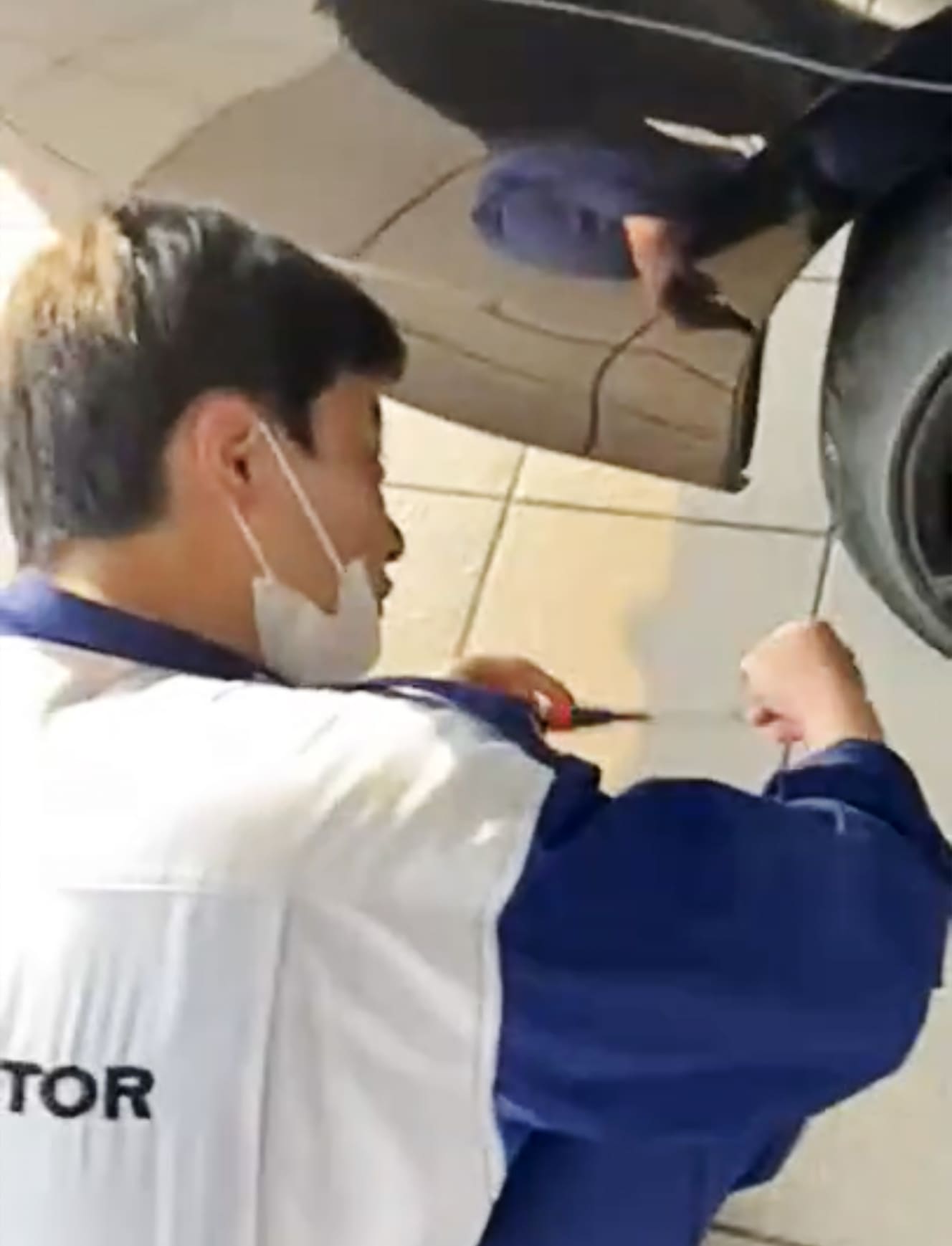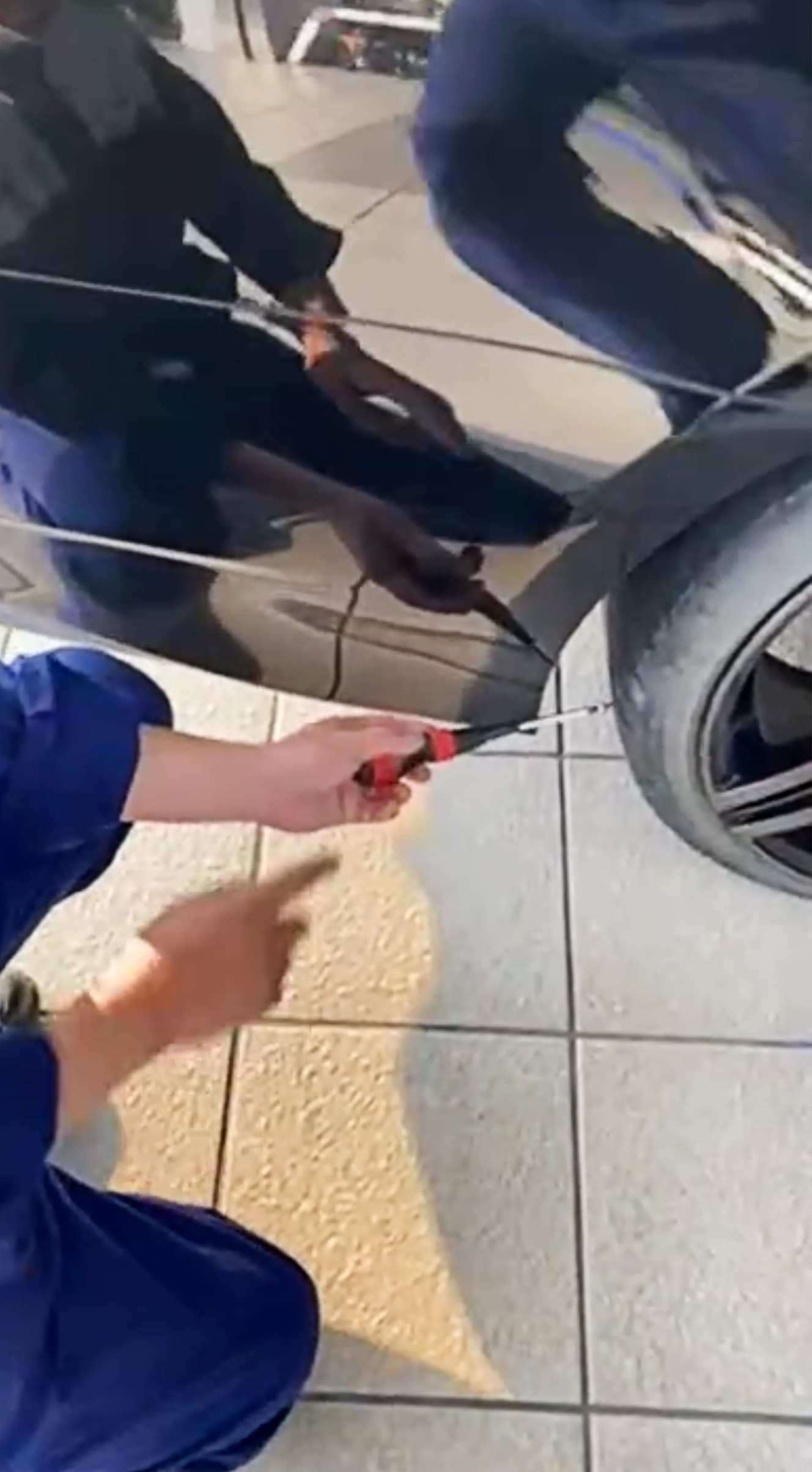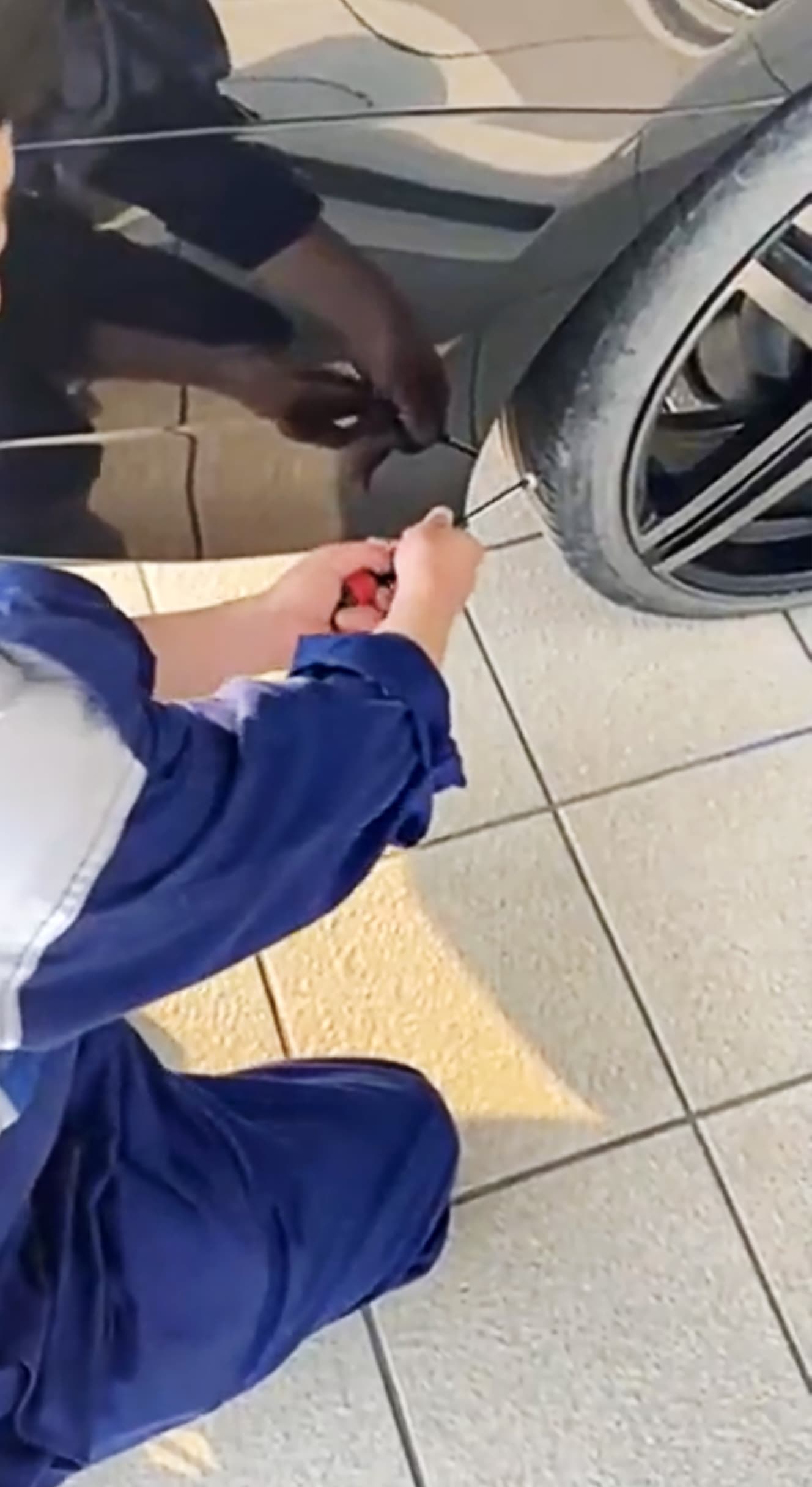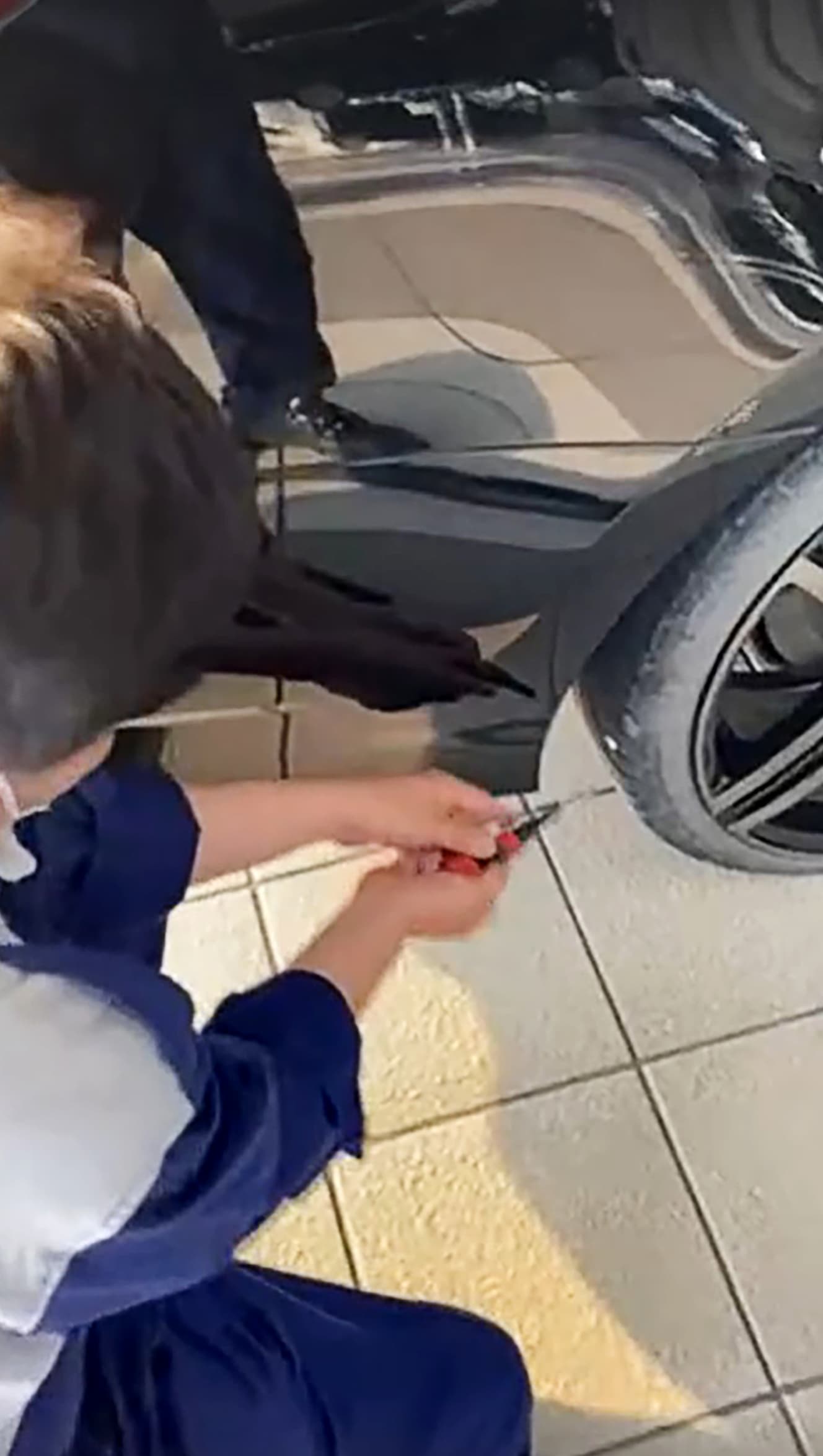Riding into the company’s sales headquarters…lawmakers who questioned the Diet reveal “Big Motor’s malicious sales practices
Automotive journalist Kumiko Kato, who has been pursuing Big Motor's "allegations of fraudulent insurance claims" and "allegations of a cover-up of a car fire," mainly through this magazine, delves into another new fact

Big Motor, a major used car sales company, has been the subject of numerous troubles.
Starting with the May 5 issue of “FRIDAY,” various allegations have been made against the company, including the fact that it had been making fraudulent insurance claims by puncturing the tires of customers’ cars and covering up an accident in which a customer’s car caught fire. In addition, on June 20, “FRIDAY Digital” also reported on “suspicions of sakura (cherry-picking) on a word-of-mouth site,” in which Big Motor employees themselves were constantly posting messages posing as users.
Against this backdrop, on July 5, Big Motor admitted that it had engaged in inappropriate behavior in insurance claims, based on the results of a rigorous investigation by a “special investigation committee” comprised of third-party attorneys and others. The “Special Investigation Committee,” which was established at the end of January of this year, has found that the company has committed misconduct as a corporation.
As we continued our coverage, we also newly learned that Big Motor’s previous wrongdoings had been covered by the Diet. On May 25, after the story appeared in FRIDAY, a member of The Japan Innovation Party, Maki Misaki, asked a question at the 211th session of the House of Representatives Special Committee on Consumer Affairs.
The following is a summary of the specific cases that came up in her question.
(1) When a customer purchased a used car, he felt that the height of the car was lowered, so he confirmed with the sales representative that the car had normal suspension before signing the contract. However, in reality, the vehicle was not stock but had been modified. The customer wanted the normal suspension and appealed to have it returned, but the sales representative reported to his supervisor that “the customer had agreed to the purchase (of the modified suspension).
The shop also lied about replacing tires with high-end ones and used inexpensive ones, making a profit from the difference, and intentionally punctured customers’ tires by putting screws in them and then charging them for the labor.
In addition, the company was found to have intentionally put a screw in a customer’s tire and charged a labor charge for the punctured tire.
After showing three specific examples, Councilor Misaki asked what the Consumer Affairs Agency and the Ministry of Land, Infrastructure, Transport and Tourism would do in such cases, and how they would resolve the situation where consumers were “crying themselves to sleep” as a result. Councilor Cape asked, “How do you deal with the situation where consumers are “crying themselves to sleep”? Although Mr. Cape did not name the “major used car dealer,” it is clear from the case alone that it is Big Motor.
However, it is clear from the examples alone that it was Big Motor.
Whether for private use or as a cab, cars are widely used as a means of transportation for the public. However, not everyone who uses a car is familiar with the mechanics of the car. There are cases where people believe the word of the person in charge of maintenance and take their word for it.
I myself do not know much about cars even though I have been a driver for a long time. After all, if I am told by the person in charge of a company or factory that I have entrusted maintenance to that I need to replace, repair, etc., I will trust them. In other words, we have seen cases where the public at large could be harmed, and I took the question with a reminder as to how we can remedy or avoid such cases, so that we do not end up crying ourselves to sleep.
Prior to Senator Misaki’s question, Yoshiharu Asakawa, also a member of The Japan Innovation Party, had asked a question at the “210th Diet Special Committee on Consumer Issues” on November 15, 2011. Mr. Asakawa, who has a detailed understanding of the case (1) that Mr. Misaki asked about, revealed, “I have a friend of mine who is a used car dealer for Big Motor.
The car had a high-performance sports-type suspension, which was not comfortable for my acquaintance to ride in, and the height of the car was so low that it was very difficult to use in normal use. Although my acquaintance is not an expert on cars, he was concerned about the low ride height when he bought the car, so he asked the store about it. The sales representative replied, ‘It has a stock suspension and has not been modified.
After taking delivery of the car, I had it looked at by another maintenance shop and found that it still had a lowered suspension (lowered ride height) sports type. He requested the store to return the suspension to the standard type, but they simply rejected his request, saying, ‘We can’t replace it.

The reason why he was told by an acquaintance that the exchange was not possible, as Councilor Asakawa was told, was also as questioned by Councilor Misaki. Councilor Asakawa continued.
“The person in charge of the store falsely reported to the store manager, block manager, and sales headquarters personnel that customers were ‘convinced’ they were buying lowered suspensions with a lower ride height. And this company has no customer service or compliance office. There is no place for customers to call directly to complain. (We also learned that the sales headquarters staff had instructed the dealers to tell them to do so (when consulted by customers). This is an outrageous company.
Whenever the author has come across a story of suspected fraud or a cover-up, he has sent numerous letters of inquiry to confirm the facts, but Big Motor has consistently maintained its silence. However, Councilor Asakawa used all available channels to meet with an executive at the company’s sales headquarters and succeeded in speaking directly with him. According to Councilor Asakawa, this acquaintance also revealed that he had been the victim of another incident.
The license plate number of his car had been changed to the number he wanted without his permission. The regular fee for the desired number is about 4,000 yen, but Big Motor’s fee is 19,800 yen. In addition, when my acquaintance offered to obtain a garage certificate by himself, he was told that ‘only the dealership can do the garage certificate,’ and here he was charged another fee of 19,800 yen. The user can obtain a garage certificate by himself at the nearest police station, and the cost is about 4,000 yen. So it was a lie that it could only be done by the dealership, and our acquaintance found out after paying that he was made to pay extra.”
In response to a question from Senator Misaki about measures to prevent “crying oneself to sleep,” Taro Kono, Minister of State for Special Missions, Cabinet Office, responded as follows
The Consumer Affairs Agency not only provides consultation services, but also acts as an intermediary to the Fair Trade Council and other related organizations, and the Consumer Affairs Center itself provides mediation services. We will work closely with the Ministry of Land, Infrastructure, Transport and Tourism to ensure that no one is left to cry themselves to sleep.
In response to Councilor Cape’s question (3), Mr. Masao Notsu, Deputy Director General of the Automobile Bureau of the Ministry of Land, Infrastructure, Transport and Tourism, said, “We have established a reporting desk to collect information on fraudulent vehicle inspections of businesses, and when information is provided, we will promptly conduct on-site inspections on an unannounced basis. Based on the results of the on-site inspections, strict measures are taken, such as administrative penalties against the operators. The most severe punishment is revocation of the designation, which means that the same business will not be allowed to operate for two years.
One wonders what Mr. Asakawa has in mind to protect consumers from malicious used car dealers like Big Motor in the future.
First of all, compliance officers need to inspect the sites and firmly instill the corporate ethics that profit supremacy is not acceptable. If the industry cannot improve on its own initiative, the government should consider the application of a cooling-off system and the establishment of a post-sale warranty system to protect consumers. After the extraordinary Diet session this fall, I would like to propose to the Consumer Special Committee a system that allows consumers to purchase used cars with peace of mind.”
The numerous troubles created by Big Motor have led to a situation in which members of the Diet have begun to take a full-fledged role in resolving the injustice.
Shocking images of the company drilling holes in the tires of ◆ customers





Interview and text by: Kumiko Kato